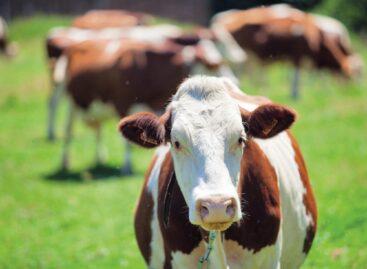Harvesting is going on, the quantity and the yield are falling short of expectations
Harvesting is already underway on 1.8 million hectares; this year’s harvest promises to be better than last year’s extremely tragic year, but it falls short of expectations in terms of quantity and yield – said the State Secretary of the Ministry of Agriculture (AM) responsible for agriculture and rural development on Friday in Budapest.

(Photo: Pixabay)
Zsolt Feldman explained at the press conference following this year’s first meeting of the Harvest Coordination Committee: three quarters of the barley has already been harvested, and the wheat harvest has also begun. The condition of autumn-sown ears of corn and canola was also favorable at the beginning of the harvest. After the harvest of three quarters of the winter barley, more than 2 million tons of winter barley are expected, with a national average yield of 5.5 tons per hectare. From the one million hectares of wheat sowing area, roughly 5.5 million tons are expected to be harvested. Compared to the view on the market, the results so far are not considered a record, as they will not reach the levels of 2021 – added Zsolt Feldman, noting that the proportion of fallen stands is high in barley, and that plant diseases have spread more in the recent rainy season. At the same time, rapeseed is in good condition, with a harvest of around 600,000 tons on 189,000 hectares this year.
Zsolt Feldman explained: while last year the drought, this year the Russian-Ukrainian war had an adverse effect on the European grain market, making the situation of farmers unfavorable
Another complicating factor is that European and Hungarian crop price levels have on average halved compared to the 2022 peaks, but costs have increased significantly as a result of the war and sanctions. The state secretary pointed out that the Russian-Ukrainian war disrupted grain trade in the entire Central European region. That is why it is important that Hungary together with its allies – the five EU member states bordering Ukraine – achieved that, according to the EU import ban lasting until September 15, grain and oil crops from Ukraine cannot be marketed in the territory of these countries – he emphasized. He added that they are also trying to stabilize the Hungarian and Eastern European markets with the decision, the extension of which is being advocated for the period after September 15. Zsolt Feldman suggested that farmers pay attention to authentic market information, he noted that “it is not worth waiting for miracles”, but you don’t have to accept every bad offer either.
MTI
Related news
AM: the Szupermenta product test program provides additional information for purchase
The National Food Chain Safety Office (Nébih) Szupermenta product test…
Read more >The Ministry of Agriculture has issued a notice on the use of ENAR data in support policy
In the case of animal-based subsidies financed from EU funds,…
Read more >Farmer-centric agricultural policy after 2027 receives unanimous support
The EU member states’ agriculture ministers have adopted Council conclusions…
Read more >Related news
This year, Trade magazine is asking its readers for their opinions on Christmas TV commercials! Vote for yourself!
The audience voting takes place between December 12 and 19,…
Read more >ESG – about sustainability standards, from a legal perspective
Since December 2023 several pieces of legislation have been published…
Read more >DairyX makes a breakthrough in dairy-free casein production
Israeli start-up DairyX Foods has made great progress in the…
Read more >








